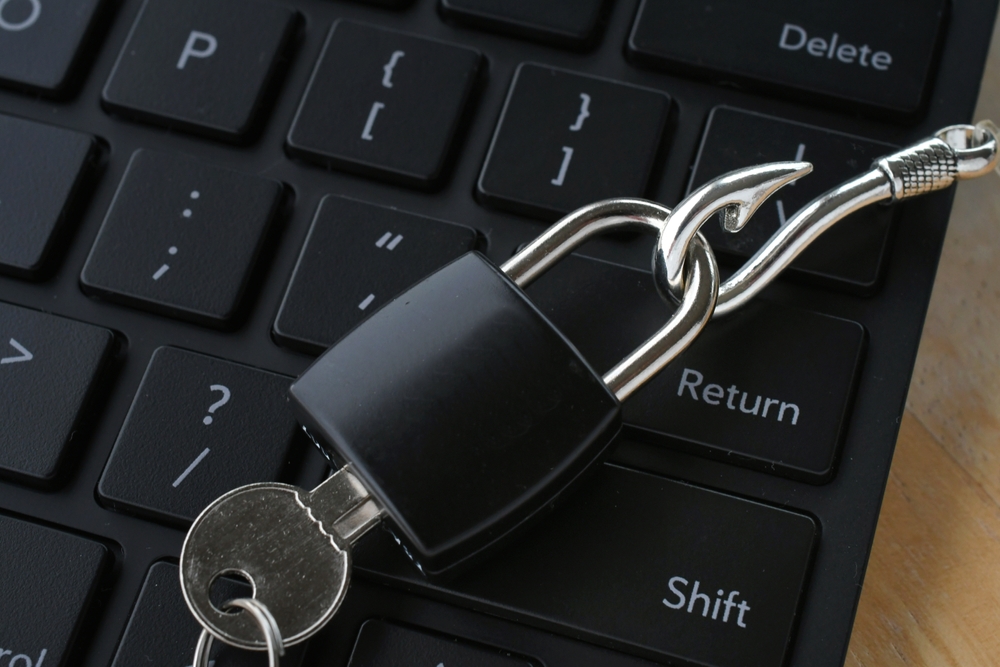Cybercrimes have seen a dramatic rise all over the globe. Malware attacks grew 358 percent in 2020 compared to the previous year, so it’s natural for people to be concerned about cybercrime. It can take many forms, but here are the most common types of cybercrimes and tips to avoid being a victim.
Phishing Scams
Phishing is one of the most common cybercrimes, in which a malicious actor sends fraudulent emails or messages designed to manipulate people into sharing sensitive information or downloading malware that exposes them to other cybercrimes.
There are several ways to protect yourself against phishing. Identifying a phishing attempt is your first line of defense. In phishing attacks, the cybercriminal poses as a legitimate institution to lure individuals into sharing sensitive or personal data, such as their bank account information, Social Security number, or credit card details.
If an email or message has come from an unusual sender and has a high sense of urgency, you should be cautious. The phishing email could warn you that your account will be suspended unless you update your personal details immediately, for example, or that a deal will expire if you don’t act immediately. These are common characteristics of phishing attacks.
Other ways to protect yourself from phishing include installing antivirus software and keeping it up to date. Some accounts offer extra security through multifactor authentication. Backing up your data on an external hard drive or in the cloud can also protect you from data loss.
Ransomware

Ransomware employs encryption to hold the victim’s personal data for ransom. This type of cybercrime can happen to both individuals and organizations. The data is encrypted, but the victim can’t access it. If they want to regain access, they have to pay a ransom. The increased use of cryptocurrency has made it more challenging to track ransomware criminals.
Use security tools such as anti-malware software and email protection gateways to keep yourself safe from ransomware attacks. It helps to keep your operating system and apps updated with the latest security patches. Using a VPN on public Wi-Fi systems can also help boost your online security, since it encrypts your online traffic. If you connect to a public network, consider using a VPN.
Identity Theft
Identify theft existed long before the advent of the internet, but such crimes have become more sophisticated. Fraudsters use various tools to obtain victims’ personal data, which includes social engineering and malware attacks. Criminals can use the victim’s stolen identity to conduct various fraudulent activities, such as making purchases or opening new accounts.
The consequences of identity theft are often devastating for victims. Watch out for common signs of identity-theft attempts, which include unexpected collection notices, suspicious emails, unusual account activity, and a sudden drop in your credit score. You should stay vigilant to avoid being a victim of identity theft. It’s best to share as little information about yourself as possible. It also helps to monitor your online accounts, bank statements, and credit reports. If you sell or donate your computer, smartphone, or other devices, make sure you wipe your data clean.
Account Hacking

Account hacking is another cybercrime in which a hacker takes control of a victim’s account, such as Twitter or Instagram. The hackers identify computer or network security vulnerabilities to gain unauthorized access to the data and then use it to steal money, destroy your credit rating, abuse your Social Security number, make purchases on your behalf, or do other illegal activities. The most common methods for account hacking are infecting devices with malware, exploiting weaknesses in wireless networks, and hacking passwords.
It can seem daunting to protect yourself from hackers, but there are practical steps to keep your information safe. You should update all your passwords to include symbols, numbers, and upper-case letters, or use a password manager that will make managing your passwords easier. Install anti-malware and antivirus software on your computer to detect and remove malicious software, since it helps to avoid high-risk online activities.
If you suspect your devices are already hacked, change your passwords as soon as possible and secure your login process through two-factor authentication. The next step is to contact people who can help, such as customer service for the account that’s compromised. If the hacker gained unauthorized access to your email, for example, you’ll need to contact your email provider’s customer service. Meanwhile, let your friends and family know about the situation and tell them to watch out for any unusual communications from your accounts.
Online Harassment and Cyberstalking
The anonymity granted by the internet provides the ideal platform for unsavory types to harass and stalk people. Unfortunately, online harassment has become increasingly common. This type of crime includes cyberbullying, revenge porn, and sending obscene emails. The criminals often use doxxing, which refers to searching or publishing private or sensitive information about someone on the internet, typically with malicious intent. Several states prosecute doxxing under electronic cyber-harassment statutes. You can improve your personal cybersecurity by checking your privacy settings, minimizing the personal information you share online, and avoiding being tracked online. If you’re already a victim of online harassment, report any such activities to the relevant authorities. If you’re being cyberbullied on a social media platform, for example, you should immediately flag and report the activity. Of course, it’s natural to be concerned that the criminal may retaliate or step up the harassment, but letting them continue will only make it worse.


